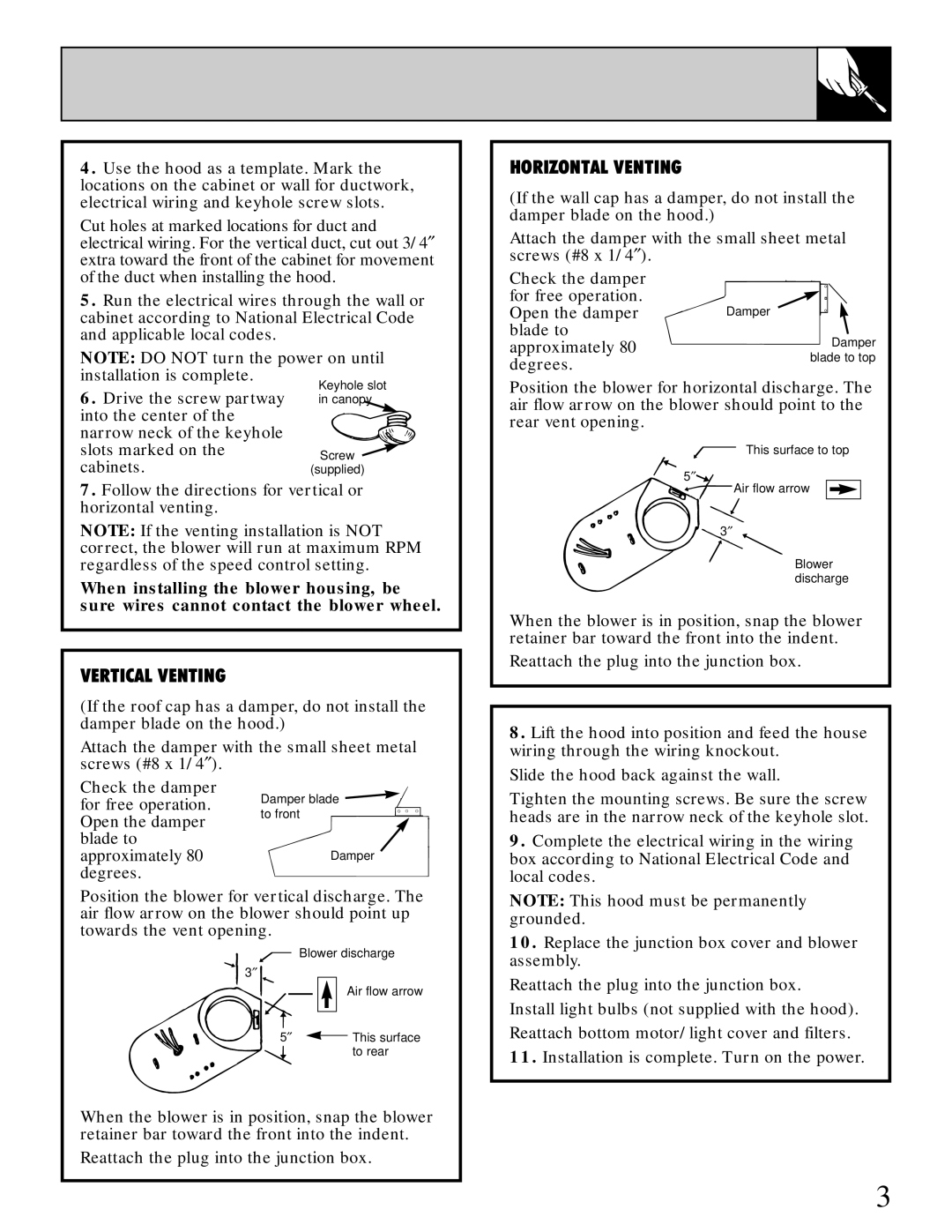JV656 36, JV356 30 specifications
The GE JV356 30 and JV656 36 are innovative products in the market of gas and electric ranges, showcasing GE's commitment to quality, performance, and technology. These models are designed to meet the diverse needs of modern kitchens, combining functionality with stylish design.The GE JV356 is a 30-inch model, ideal for compact spaces while still providing an impressive cooking capacity. It features a traditional oven with a clean design that seamlessly integrates into any kitchen décor. The JV356 is equipped with a self-cleaning function, which takes the hassle out of maintaining an immaculate oven. This model also comes with four powerful sealed burners, including a high-BTU burner for quick boiling, making meal preparation efficient and speedy. The continuous griddle feature allows home cooks to easily maneuver pots and pans across the cooking surface, enhancing convenience.
On the other hand, the GE JV656 36 is designed for those who want a larger cooking surface. The 36-inch range allows for more burners and features, catering to cooks who may require additional capacity for larger families or entertaining. This model boasts six sealed burners, providing optimum cooking flexibility. Furthermore, the JV656 includes a dual oven feature, allowing simultaneous cooking at different temperatures, perfect for elaborate meals. Both models are equipped with advanced technologies that optimize cooking performance. Features such as air fry modes, convection cooking, and precision temperature control ensure that every meal is cooked to perfection.
In terms of energy efficiency, both the JV356 and JV656 models adhere to modern standards, utilizing innovative insulation and control technologies that minimize energy waste while boosting performance. Additionally, their sleek, stainless steel finishes not only enhance their aesthetic appeal but also resist smudging and staining.
With their commitment to user-friendly design and advanced cooking technologies, the GE JV356 30 and JV656 36 are perfect for home chefs who value quality, versatility, and reliability in their kitchen appliances. Whether preparing everyday meals or hosting festive gatherings, these ranges are engineered to elevate the cooking experience. Overall, GE continues to push the boundaries of kitchen technology, making mealtime more enjoyable and efficient for everyone.

